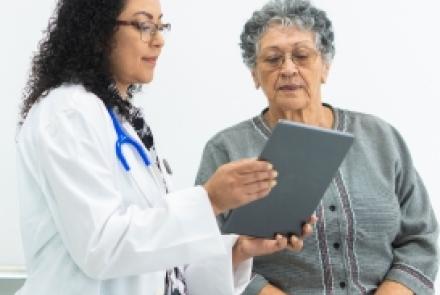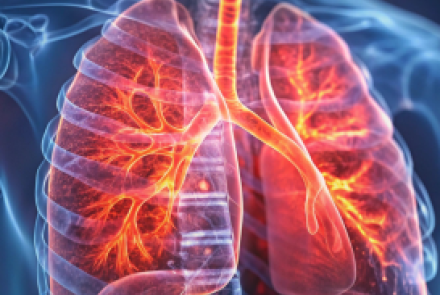Early detection is key for lung cancer treatment to be successful.
Lung cancer is one of the most common forms of cancer in Rockland County, NY. The American Cancer Society recommends lung cancer screening with low dose chest CT scans for patients over 50 years old who have smoked a pack a day for more than 20 years, regardless of when they quit.
Montefiore Nyack Hospital offers a screening program to detect and treat lung cancer early when it is most treatable. Led by Murali G. Krishna, MD, FCCP, director of pulmonology at Montefiore Nyack Hospital, along with Dr. Cynthia Chin, Dr. Sean Kwon, Dr. Todd Weiser, thoracic surgeons who perform surgery at Montefiore Nyack Hospital and White Plains Hospital, this program provides patients access to screenings with a referral from their primary care physician.
Diagnosis and Treatment
A lung cancer screening typically involves a low-dose CT scan to detect early signs of lung cancer. If the screening identifies a nodule or abnormality in the lung, your physician may recommend further diagnostic tests. These tests include additional imaging studies, a biopsy, or a PET/CT scan to gather more information about the suspicious lesion. If malignant, the gold standard for treating early-stage lung cancer is thoracic surgery.
“Screening, specifically for former smokers over 50 years of age, before the development of symptoms, is important as lung cancer is usually too advanced for curative treatment once symptoms develop,” says Dr. Krishna. “Being part of the Montefiore Health System we have access to clinical expertise across various specialties, and this is an example of how we work with colleagues at White Plains to offer advanced robotic thoracic surgeries to patients at Montefiore Nyack Hospital.”
What is Robotic Thoracic Surgery?
Robotic thoracic surgeries can treat early-stage lung cancer, emphysema, and other lung diseases. The surgery can vary in length depending on its complexity, but it typically lasts several hours.
“Robotic-assisted surgery offers several advantages over traditional open surgery, including smaller incisions, less pain, enhanced precision, reduced risk of complications and faster recovery time,” says Dr. Kwon.
Before surgery, you will undergo a thorough evaluation, including a physical exam, blood tests, imaging (like a CT scan or X-ray), and a pulmonary function test. Be sure to tell your doctor about any medications you are taking, including over-the-counter drugs, herbal supplements, and any allergies.
Recovery
Most patients can go home within 2-3 days after surgery, though recovery can take several weeks to months, depending on the procedure and individual health.
Like any surgery, robotic thoracic surgery does come with risks and complications. The incidence is low, and the benefit of quicker recovery times and fewer complications than traditional open surgery makes it a preferred choice for many patients.
“Post-surgery evaluation and monitoring are crucial to ensure that the cancer hasn’t spread or returned,” said Dr. Kwon. “Follow-up care will usually involve a combination of routine evaluations, imaging tests and potential biopsies. We will develop a follow-up plan that will depend on factors, such as lung cancer stage, type of surgery, and the patient’s overall health.”
Thoracic surgery can be lifesaving or life-enhancing, but it requires careful preparation and recovery. For some individuals, pulmonary rehabilitation and physical therapy can be beneficial in aiding recovery and improving lung function.
Clear communication with your healthcare team, adherence to post-operative instructions, and patience during recovery are key factors in a successful outcome.
Highland Medical, Pulmonary Medicine Associates, 160 North Midland Avenue, 2nd floor within Montefiore Nyack Hospital, specializes in pulmonary conditions and lung disorders. To schedule a consultation or an appointment, call 845-897-8371. For a lung screening, please call our nurse navigator at 845-348-8360.






